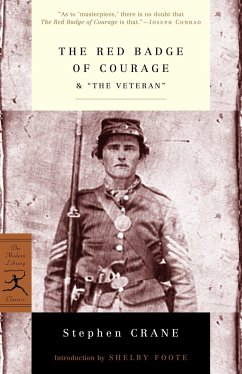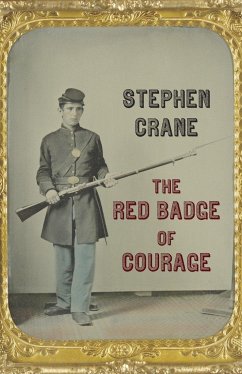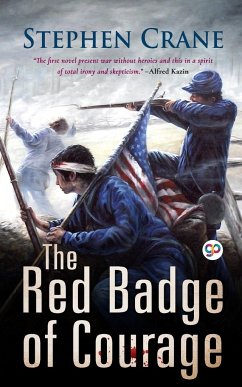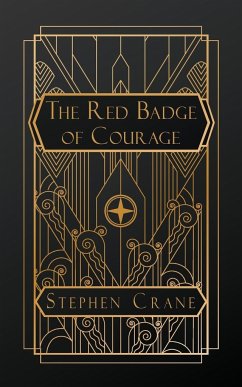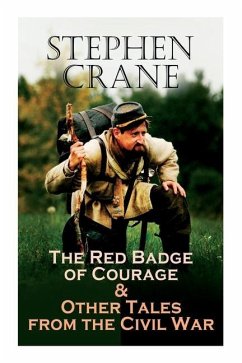
The Red Badge of Courage
Versandkostenfrei!
Versandfertig in 1-2 Wochen
12,99 €
inkl. MwSt.

PAYBACK Punkte
6 °P sammeln!
Young Henry Fleming has the romantic notions of the hero he will be when he enters his first battle, but his illusions are soon destroyed and he turns and runs. Ironically, he receives his 'red badge' when a fellow soldier strikes his head with the butt of a gun. He sees a friend die and tries to find security in a secluded spot in the forest...and so begins the true battle of the story, the one that rages inside's the hero's soul.




